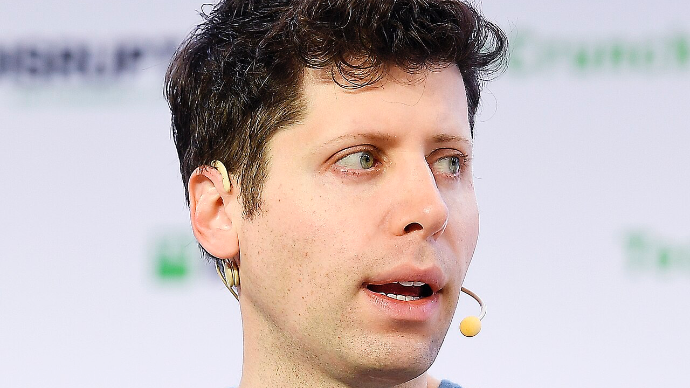[ad_1]
In the past few weeks, a wave of #MeToo allegations has raced to the very top of Taiwan’s political, judicial and arts scenes, forcing a new reckoning of the state of women’s rights on a democratic island that has long taken pride in being among Asia’s most progressive places.
Nearly every day, fresh allegations emerge, setting off discussions on talk shows and on social media, with newspaper commentaries and activist groups calling for stronger protections for victims.
In many ways, Taiwan stands out for the significant strides that women have made that helped elect the island’s first female president and bolster laws against rape and sexual assault, before #MeToo took off in the United States. But the flood of new sexual harassment accusations points to what activists and scholars say is entrenched sexism that leaves women vulnerable at work, and a culture that is quick to blame victims and cover up accusations against powerful men.
The outpouring of complaints was set off by a popular Netflix drama about Taiwanese politics called “Wave Makers,” which featured a subplot about a female member of a political party telling her boss that she had been sexually harassed by a high-ranking party member. Her boss promises to help her report the harassment, and in an indication of how often such politically inconvenient complaints are ignored, says, “Let’s not just let this go this time.”
That quote from the fictional supervisor became a clarion call, inspiring more than 100 accusers, mostly women, to speak out on social media, sharing their accounts of unwanted kisses, groping and in a few cases, attempted rape. They described the indignities endured at the workplace, including inappropriate touching and unwanted advances by male colleagues and bosses, as well as lewd comments. Some of their posts have been shared thousands of times.
The stakes are particularly high for President Tsai Ing-wen’s governing Democratic Progressive Party. Senior party and government officials were among the first accused of harassment and of seeking to silence accusers, forcing Ms. Tsai to apologize twice for her party’s mishandling of internal complaints. The criticism runs counter to the party’s record as a champion of liberal values, which includes legalizing same-sex marriage in 2019 and granting gay couples the right to adopt earlier this year. And it poses risks to the party’s credibility with younger voters ahead of a presidential election next year.
“The Democratic Progressive Party has regarded itself as the governing party that supports gender equality,” Fan Yun, a party legislator who is also a professor specializing in gender issues at National Taiwan University, said in a telephone interview. “The Netflix show was seen by others as a snapshot of what’s happening within the party, and it has brought about great impact.”
Among the most senior figures accused of harassment is Yen Chih-fa, who denied the allegation but resigned from his post as an adviser to President Tsai. Taiwan’s highest legal body said it would investigate a complaint against a former chief justice, Lee Po-tao. Tsai Mu-lin, a high-level party official, has been accused of bullying a female party staff member into silence when she reported that a male colleague had tried to enter her hotel room.
Mr. Tsai, who is not related to the president, has since stepped down. The woman who accused him, Chen Wen-hsuan, said she felt empowered to speak out publicly by the other women who had shared their experiences. “This movement has taught me that no injustice should be swallowed,” she said. “After all, we can’t just let it go.”
Allegations have also been made against men from the main opposition party, the Kuomintang, as well as across Taiwan’s society more broadly, including in academia, journalism, and most recently, entertainment.
Mickey Huang, a TV personality, apologized after being accused by a woman he met at work of kissing her without her consent and forcing her to be photographed nude. Aaron Yan, a pop star, apologized after an ex-boyfriend accused him of secretly shooting videos of them having sex, when the ex-boyfriend was 16, a minor. Local prosecutors said this week they would investigate the allegation.
In some ways, the #MeToo movement points to a generational shift in attitudes brought about by the hard-fought advances won by women’s rights activists in decades past. Taiwan’s younger generation started learning about gender equality in elementary school, as part of curriculum changes enacted in 2004, and have since come of age.
But workplaces are struggling to keep pace.
Taiwan’s younger generation has “a higher awareness of gender diversity and equality than the older generation,” said Wei-Ting Yen, an assistant professor of government at Franklin and Marshall College in Pennsylvania. “However, the workplace that young people are entering is still dominated by the older generation.”
Lawmakers have pledged to quickly pass changes to laws to make workplaces and schools safer by holding organizations accountable for protecting victims of harassment. The changes would require organizations to track complaints and provide independent, third-party review panels if needed. Women’s rights groups have called for Taiwan to extend the statute of limitations for sexual harassment complaints, currently at one year.
But activists also say more needs to be done to address the culture of sexism that underlies the misconduct and deters many women from speaking out. A survey by Taiwan’s labor ministry last year showed that only a tiny percentage of female respondents who said they had encountered sexual harassment at work had filed complaints. Activists and scholars in Taiwan say that men in power, whether they are supervisors in workplaces or police officers or judges, are often seen as sympathetic toward other men in power, and likely to blame the victim.
This month, Lai Yu-fen, 27, accused a Polish diplomat, Bartosz Rys, on her Facebook and Twitter accounts, of what Ms. Lai described as sexual assault last year. She said that when she filed a police report, investigators asked why she had apologized to the diplomat as she rejected his advances, and why she had not told her family about the encounter. She said a defense lawyer gossiped about her to mutual friends. “I want to take back my own story,” Ms. Lai said in an interview.
The Polish Office in Taipei, Poland’s de facto embassy in Taiwan, confirmed that it cooperated with the authorities. Prosecutors decided not to charge Mr. Rys, whose posting ended last year and who later left Taiwan. He did not respond to an emailed request for comment, but said on his Twitter page that Ms. Lai had sought money in exchange for dropping the accusation. (She said the request for money was part of negotiating a legal settlement.)
To those working in Taiwan’s civil society, perhaps the most concerning of allegations are those directed at activists seen as influential leaders in the rights community. Lee Yuan-chun, 29, an activist, this month publicly accused Wang Dan, a veteran Chinese pro-democracy dissident, of pressing him onto a bed and asking him for sex in 2014. He said he was suing Mr. Wang.
In a statement, Mr. Wang said he hoped that the public would reserve judgment until a court ruled on the lawsuit. “As a public figure, one’s private life will be subject to more stringent scrutiny,” he said. “Through this incident I will pay more attention to this in the future.”
[ad_2]
Source link





















